Motility in Biology
Motility refers to the ability of an organism or a cell to move independently. In biology, motility is a crucial characteristic that allows organisms to perform various functions such as seeking food, evading predators, finding mates, and dispersing to new habitats.
Types of Motility
There are two main types of motility in biology:
- Flagellar motility: This type of motility involves the movement of cells using whip-like structures called flagella. Flagella are long, thread-like appendages that protrude from the cell and propel the cell forward through a whip-like motion.
- Ciliary motility: Ciliary motility involves the movement of cells using shorter, hair-like structures called cilia. Cilia are shorter and more numerous than flagella, and they beat in a coordinated manner to move the cell or to move substances across the cell surface.
Mechanisms of Motility
The mechanisms underlying motility vary among different organisms. In unicellular organisms such as bacteria and protozoa, motility is often achieved through the coordination of motor proteins and cytoskeletal elements. In multicellular organisms, motility is more complex and can involve muscle contractions, coordinated ciliary movements, or the extension and retraction of cellular protrusions.
Importance of Motility
Motility is essential for various biological processes:
- Locomotion: Motility allows organisms to move towards favorable environments and away from harmful conditions.
- Feeding: Many organisms rely on motility to capture food and nutrients.
- Reproduction: Motility is crucial for finding mates and dispersing offspring to new habitats.
- Immune response: Motility of immune cells enables them to migrate to sites of infection or injury.
Study Guide for Motility
When studying motility in biology, consider the following key points:
- Understand the structures involved in motility, such as flagella and cilia, and how they function to propel cells.
- Explore the different mechanisms of motility in unicellular and multicellular organisms.
- Discuss the evolutionary significance of motility and how it has contributed to the survival and success of various organisms.
- Examine specific examples of motility in different organisms, from bacteria and protozoa to animals and plants.
- Consider the implications of motility in disease processes and how disruptions in motility can impact health and function.
◂Biology Worksheets and Study Guides High School. Nucleic acids and protein synthesis
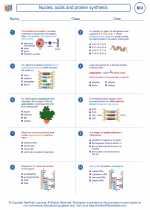
 Worksheet/Answer key
Worksheet/Answer key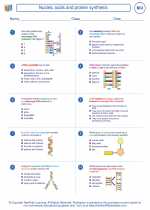
 Worksheet/Answer key
Worksheet/Answer key
 Worksheet/Answer key
Worksheet/Answer key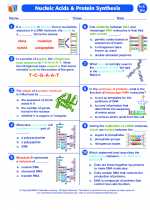
 Vocabulary/Answer key
Vocabulary/Answer key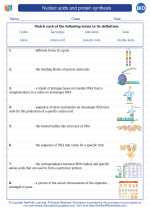
 Vocabulary/Answer key
Vocabulary/Answer key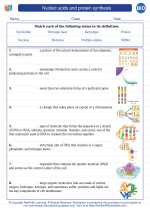
 Vocabulary/Answer key
Vocabulary/Answer key
